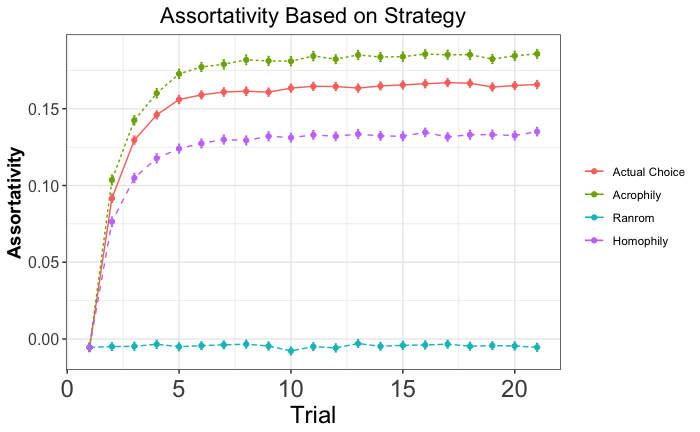A new preprint with Mac Abruzzo, @RobbWiller, @eranh75_eran & James Gross in which we explore political acrophily (love of extremes), which is the tendency to prefer social ties that are more extreme than one’s own view, compared to moderate. 1/7 https://osf.io/9xetr
Political segregation is a significant social problem in the US. A central driver of segregation is homophily, the tendency to associate with similar others. Homophily is one of the most well-documented social forces. But does homophily alone drive social tie decisions? 2/7
We argue that people’s tie selection decisions are also driven by political acrophily (love of extremes). Determining whether political acrophily is evident is important because it may be a central driver for political segregation and subsequently to increased polarization. 3/7
Homophily and Acrophily were evaluated using a novel online paradigm in which participants shared their emotional responses to political content (here, incidents of police brutality), observed others’ responses, and then chose which others to continue affiliating with. 4/7
We found that both liberals and conservatives preferred a tie selection strategy that was a mix of homophily + acrophily, and was different from pure homophily and pure acrophily. 5/7
Using an agent-based model, we showed that homophily + acrophily (participants' actual choices) leads to increased macro network segregation compared to just homophily (evaluated by the assortativity coefficient Newman, 2003). 6/7
This is the first paper, to our best knowledge, that explores the notion of acrophily, both in political contexts and in general. This project has been in the works for a long time and I am really thankful to my collaborators and excited by future extensions. 7/7
@ImHardcory - what we talked about last week. @eric_knowles - thanks for the miller reference!
Link the pre-print again - https://osf.io/9xetr

 Read on Twitter
Read on Twitter





